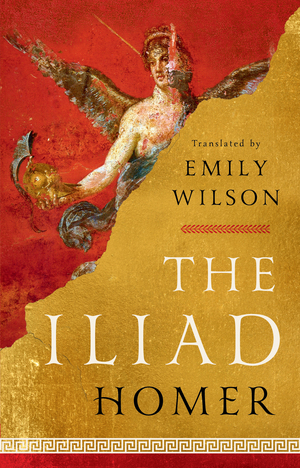This is a repeating event- Event 2 / 69 September 2025 6:00 pm23 September 2025 6:00 pm
Homer's Iliad
Event Details
The Iliad is one of the first written works in Western
Event Details

The Iliad is one of the first written works in Western Literature, and undoubtedly one of the greatest. Although the story of its composition and recording remains a subject of scholarly debate, we can tentatively date it to the late 8th or early 7th Century BCE. It is impossible to overestimate The Iliad’s importance, which extends beyond literature to influence art, culture, society and morals – Alexander the Great carried the copy given to him by Aristotle on his campaigns and John Keats was inspired to write one of his most perfect sonnets after a night of reading.
The Iliad is a thrilling and heart-wrenching poem about war, human mortality and loss. But it is also about friendship, families, the natural world, love and redemption. One of the joys of the work, and perhaps why re-reading is so rewarding, is the richness and relatability of Homer’s world. Richness takes many forms, including a huge cast of characters, vivid language and similes, and how invested we become in this epic story. Homer invites us into a world that is both familiar and strange. The society is patriarchal, slave-holding, monarchical and polytheistic. The text is more than two and a half thousand years old, yet the characters speak directly to our own experience. Who hasn’t feared for a loved one? Or been mad at their boss (hopefully not enough to almost draw a sword against them)? Or wondered at the beauty of the sunrise?
This year we’ll also be bringing an environmental lens to our reading. We’ll discuss ways The Iliad may have contributed to the current climate crisis. Whether the work includes warnings and an awareness of the dangers of environmental damage. And how we might use this knowledge to drive change.
Emily Wilson’s new translation of The Iliad was published to acclaim in 2023.
“Wilson’s approachable storytelling tone invites us in, only to startle us with eruptions of beauty… Wilson’s transformation of such a familiar and foundational work is astonishing.”
Rebecca Newberger Goldstein, The Atlantic
Using iambic pentameter – the rhythm of Chaucer, Shakespeare and Milton – Wilson’s translation has the lyrical quality the Ancient Greeks would have experienced in a work so closely linked to performance. Her writing is brisk and readable, bringing a fresh perspective to an ancient tale.
We will combine a close reading of the text and bonus features: poems and art inspired by the epic, consideration of the psychology of war, and images of museum exhibits. We’ll also draw on Edith Hall’s new book Epic of the Earth (ISBN 978-0-300-27558-2) but it’s not necessary either to have a copy or to have read this in advance of the study.
The study is offered in two six-week sections. The first six sessions covering books 1-12 will be followed by a two-week break and then six sessions for the final 12 books.
JOINING DETAILS:
- Section 1: Six two-hour meetings on Zoom, from 6-8pm (UK) on consecutive Tuesdays from 9 September to 14 October led by Caroline Hammond and Susanna Taggart. Following a two-week break there will be a further six two-hour meetings on Zoom, from 6-8pm (UK) on consecutive Tuesdays from 4 November to 9 December.
- We’ll use Emily Wilson’s translation of Homer’s Iliad (ISBN-10: 1324076143 ; ISBN-13: 978-1324076148).
- £210 for the first six meetings with two facilitators (participants in Section 1 will be given priority when the second set is posted for booking) to include opening notes and resources.
- Please use this link to share details of the study.
Time
16 September 2025 6:00 pm - 8:00 pm(GMT+01:00)
Location
VIRTUAL - ON ZOOM
